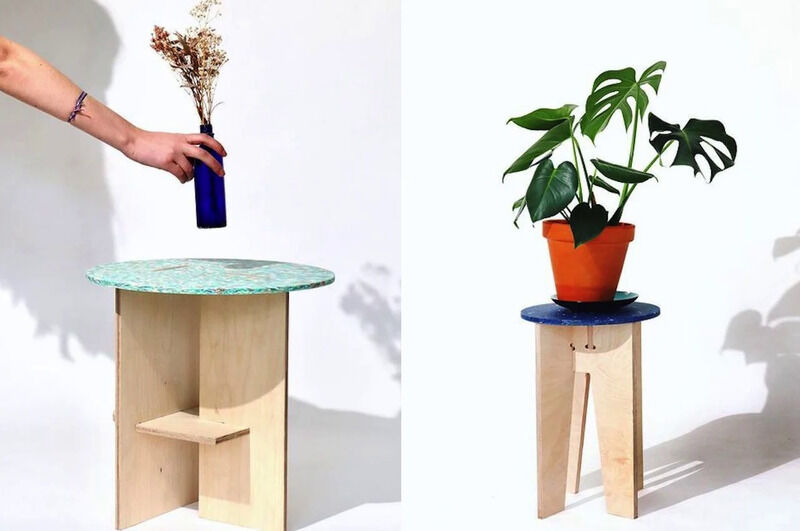
The Bristol Plastic Factory Creates Sustainable Solutions
Michael Hemsworth — March 26, 2022 — Eco
References: bristolplasticfactory & yankodesign
The Bristol Plastic Factory was started by Eva Gilder-Hodgson as a brand that highlights an array of home decor pieces that incorporate recycled materials for a more sustainable profile. The brand is focused on transforming plastic waste into products that offer endless lifecycles and also highlight the beauty that can be created with unexpected materials. The various pieces are achieved by having plastic collected before starting the recycling process, melting it down and molding it into pieces like side tables.
The Bristol Plastic Factory identifies the ways in which sustainability in design is continuing to permeate the market and grow from grassroots initiatives. This speaks to the ways that designers and consumers alike are combating against unnecessary waste and highlighting a circular economy.
The Bristol Plastic Factory identifies the ways in which sustainability in design is continuing to permeate the market and grow from grassroots initiatives. This speaks to the ways that designers and consumers alike are combating against unnecessary waste and highlighting a circular economy.
Trend Themes
1. Sustainable Design - The trend towards sustainable design highlights the potential to incorporate recycled materials into chic home decor pieces.
2. Circular Economy - The rise of the circular economy ensures that products have endless lifecycles, resulting in less waste and greater environmental benefits.
3. Grassroots Initiatives - Grassroots initiatives, like the Bristol Plastic Factory, showcase how small businesses can contribute to a sustainable future and inspire change on a larger scale.
Industry Implications
1. Recycling - The recycling industry can capitalize on the demand for recycled materials in furniture design and work towards developing more efficient and effective processes.
2. Home Decor - The home decor industry has an opportunity to incorporate sustainable design into their products and satisfy the growing demand for eco-friendly options.
3. Manufacturing - The manufacturing industry can embrace sustainable initiatives and implement them in their production practices to contribute to a circular economy and reduce waste.
6.3
Score
Popularity
Activity
Freshness
























